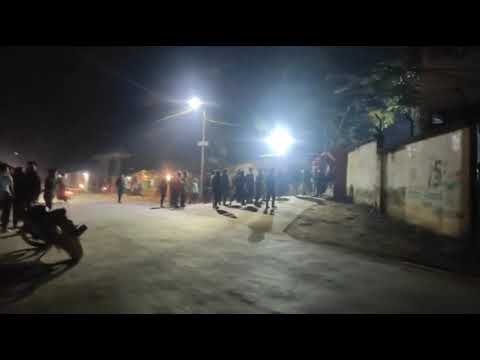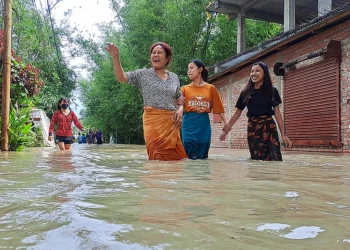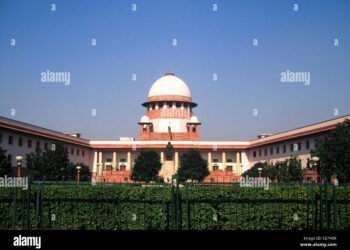In a rare move, Kuki-Zo armed groups condemned their own community for protesting Modi’s visit, urging dialogue over division.
BY PC Bureau
The United Peoples’ Front (UPF) and Kuki National Organisation (KNO), two umbrella bodies representing Kuki-Zo armed groups under a ceasefire pact with the Centre, have condemned the September 14 attack on Pearsohmun police station in Churachandpur, calling it an “imbecilic” and “selfish, disastrous activity” that undermines fragile peace efforts.
The incident came barely a day after Prime Minister Narendra Modi’s maiden visit to Manipur since ethnic violence erupted in May 2023. According to police, a group of juveniles had earlier vandalized decorations on NH-02 (Tipaimukh Road) meant to welcome the PM. At least two of them were arrested, sparking anger.
On September 14, the youths stormed the police station demanding their release, pelting stones at Central Armed Police Forces (CAPF) and triggering chaos around 1:00 PM. The unrest led to burning of the house of Calvin Aikhenthang, External Affairs Secretary of KNO.
READ: SPECIAL REPORT: Bihar Latest — How Adani Has Thrived on Govts Generosity
In a joint statement issued September 16, the UPF and KNO decried the timing, noting that Kuki-Zo communities are “still raw and languishing in make-shift relief camps.” The groups stressed that such actions only deepen divisions, embarrass the community, and derail reconciliation. “Let us ponder a moment: is any internal or personal issue of greater magnitude to warrant such incidents, rather than union to bring healing and restitution to our beleaguered people?” the statement asked, urging “reformation conviction to be part of the solution.”
READ: Press Statement UPF & KNO (2)
This marks a rare occasion where the two armed groups have openly condemned their own community members who protested the Prime Minister’s visit, arguing that the Centre had failed to deliver justice for the brutal ethnic violence of May 3, 2023. While the statement reflects anger over the burning of a house belonging to one of their senior leaders, it also signals a growing understanding between the Kuki-Zo armed groups and the authorities—an alignment that could carry significant ramifications in a state where deep-rooted distrust of officialdom continues to persist among the tribals.
That distrust has only deepened after PM Modi’s ₹8,000-crore-plus package earmarked less than ₹27 crore for the two most populous tribal districts—Churachandpur and Kangpokpi—while extending far greater largesse to the valley, sparking sharp reactions from the Kuki-Zo communities.
Manipur has been gripped by ethnic conflict since May 3, 2023, when a Manipur High Court order recommending Scheduled Tribe (ST) status for the majority Meiteis sparked violent clashes with the minority Kuki-Zo tribes. What began as protests escalated into arson, revenge killings, and militia clashes. By early 2025, more than 260 people had been killed, nearly 60,000 displaced, and over 58,000 sheltered in relief camps.
The violence toppled the BJP-led state government of Chief Minister N. Biren Singh in February 2025, bringing President’s Rule. Critics accused Singh of pro-Meitei bias, while Kuki-Zo groups demanded separate administration under the Suspension of Operations (SoO) pact.
Against this volatile backdrop, PM Modi’s September 13 visit carried symbolic weight. While PM called for dialogue to bridge hill-valley divides, the tensions linger: The Kuki-Zo Council has claimed it never signed any agreement with the Ministry of home affairs to “open” the NH-02, furthering complicating the ground situation. .
The UPF and KNO view the Churachandpur police station attack as a dangerous setback. “Such unwarranted incidents only fuel our long struggle under majoritarian stranglehold,” the statement read, calling on all sides to preserve calm for the “greater community.”
With Manipur marking nearly 28 months of unrest, the latest flashpoint underscores how fragile peace remains—and how easily it can be undone.









